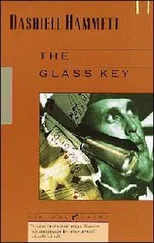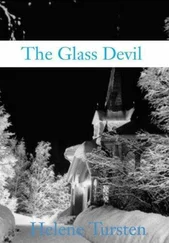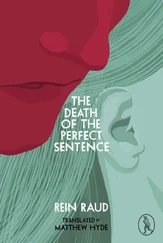The audience, taken aback by this direct attack, clapped somewhat reluctantly. Shadrack sat silently, his eyes furious but his face calm and grim. Sophia swallowed hard. “I’m sorry, dear,” the woman murmured. “That was very much uncalled for.”
“In sum,” Wharton went on, “I wish to add an amendment that will put into effect a complete closure of the borders not only for foreigners but for citizens as well. Middles has the Patriot Plan, which will protect us from foreigners. I say good—but not good enough . I therefore propose here, in addition, a measure to protect us from ourselves. The Protection Amendment: Stay home, stay safe!” The cheers that met this were few but enthusiastic. “I propose that foreign relations be restricted and trade with specified Ages be facilitated, respectively, as follows.” Sophia hardly heard the remainder. She was watching Shadrack, wishing desperately that she could be sitting beside him rather than gazing down from the upper balcony, and she was thinking about what would happen if Wharton’s plan passed and the Age of Exploration came to an end.
Shadrack had warned her already that this might happen. He had done so again the night before, as he practiced his speech for the fifteenth time, standing at the kitchen table while Sophia made sandwiches. She had found it impossible to imagine that anyone would hold such a close-minded view. And yet it seemed, from the response of the people around her, that it was all too possible.
“Does no one want the borders to remain open?” Sophia whispered at one point.
“Of course they do, my dear,” her benchmate said placidly. “Most of us do. But we’re not the ones with the money to talk in Parliament, are we? Don’t you notice that all the people who clap for the likes of them are on the ground floor—in the pricey seats?”
Sophia nodded forlornly.
Finally, the bell rang and Wharton triumphantly left the stage.
The timekeeper called, “Mr. Shadrack Elli.” There was a smattering of polite clapping as Shadrack strode to the dais. While the clock was being set to four minutes and thirteen seconds, he glanced up at the balcony and met Sophia’s eye. He smiled, tapping the pocket of his jacket. Sophia smiled back.
“What does that mean?” her companion asked excitedly. “A secret sign?”
“I wrote him a note for good luck.”
The note was really a drawing, one of the many Shadrack and Sophia left for one another in unexpected places: an ongoing correspondence in images. It showed Clockwork Cora, the heroine they had invented together, standing triumphantly before a cowed Parliament. Clockwork Cora had a clock for a torso, a head full of curls, and rather spindly arms and legs. Fortunately, Shadrack was more dignified. With his dark hair swept back and his strong chin held high, he looked self-assured and ready. “You may begin,” the timekeeper said.
“I am here today,” Shadrack began quietly, “not as a cartologer or an explorer, but as an inhabitant of our New World.” He paused, waiting two precious seconds so that his audience would listen carefully. “There is a great poet,” he said softly, “whom we are fortunate to know through his writing. An English poet, born in the sixteenth century, before the Disruption, whose verses every schoolchild learns, whose words have illuminated thousands of minds. But because he was born in the sixteenth century, and to the best of our knowledge England now resides in the Twelfth Age, he has not yet been born. Indeed, as the Fates would have it, he may never be born at all. If he is not, then his surviving books will be all the more precious, and it will fall to us— to us— to pass on his words and make certain they do not disappear from this world.
“This great poet,” he paused, looking out onto his audience, which had fallen silent, “wrote:
No man is an island, entire of itself; Every man is a piece of the continent, a part of the main. If a clod be washed away by the sea, Europe is the less. . . . Any man’s death diminishes me, because I am involved in mankind.
“I need not persuade you of his words. We have learned them to be true. We have seen, after the Great Disruption, the great impoverishment of our world as pieces fell away, washed into the seas of time—the Spanish Empire fragmented, the Northern Territories lost to prehistory, the whole of Europe plunged into a remote century, and many more pieces of our world lost to unknown Ages. It was not so long ago—fewer than one hundred years; we remember that loss still.
“My father’s mother Elizabeth Elli—Lizzie, to those who knew her well—lived through the Great Disruption, and she saw that loss firsthand. Yet it was she who inspired me to become a cartologer by telling me the story of that fateful day and reminding me, every time, to think not of what we had lost but what we might gain. It took us years—decades—to realize that this broken world could be mended. That we could reach remote Ages, and overcome the tremendous barriers of time, and be the richer for it. We have perfected our technologies by borrowing from the learning of other Ages. We have discovered new ways of understanding time. We have profited—profited greatly—by our trade and communication with nearby Ages. And we have given.
“My good friend Arthur Whims at the Atlas Press,” he said, holding up a slim leather-bound volume, “has reprinted the writings of John Donne, so that his words can be known to others beyond our Age. And this learning across the Ages is not at an end—much of the New World is still unknown to us. Imagine what treasure, be it financial”—he looked keenly at the members of parliament—“scientific, or literary, lies beyond the borders of our Age. Do you truly wish to wash that treasure away into the sea? Would you wish our own wisdom to fall out of this world, imprisoned within our borders? This cannot be, my friends—my fellow Bostonians. We are indeed tolerant, and we are industrious, as Mr. Middles claims, and we are a part of the main. We are not an island. We must not behave like one.”
The clock ran out of time just as Shadrack stepped away from the dais, and the timekeeper, caught up by the stirring words, somewhat belatedly rang his bell into the still silence of the State House. Sophia jumped to her feet, clapping loudly. The sound seemed to rouse the audience around her, which broke into applause as Shadrack returned to his seat. Miles pounded him heartily on the back. The other speakers sat stone-faced, but the cheers from the balcony made it clear that Shadrack had been heard.
“That was a good speech, wasn’t it?” Sophia asked.
“Marvelous,” the woman replied, clapping. “And by so handsome a speaker, my dear,” she added somewhat immaterially. “Simply stupendous. I only hope it’s enough. Four minutes isn’t very much time, and time weighs more than gold.”
“I know,” Sophia said, looking down at Shadrack, entirely unaware of the heat as the members of parliament withdrew to their chamber to make a decision. She checked her watch, tucked it back into her pocket, and prepared herself to wait.
—9-Hour 27: Parliament in Chambers—
THE HALL WAS stuffy with the smell of damp wool and peanuts, which the audience members bought from the vendors outside. Some people went out to get fresh air but quickly returned. No one wanted to be away when the members of parliament returned and rendered their decision. There were three options: they could take no action at all, or recommend one of the plans for review, or adopt one of them for implementation.
Sophia looked at the clock over the dais and realized that it was ten-hour—midday. As she checked to see if Shadrack had returned, she saw the members of parliament filing into the hall. “They’re coming back,” she said to her benchmate. Several minutes of rushed scurrying ensued as people tried to find their seats, and then a hush descended over the audience.
Читать дальше












